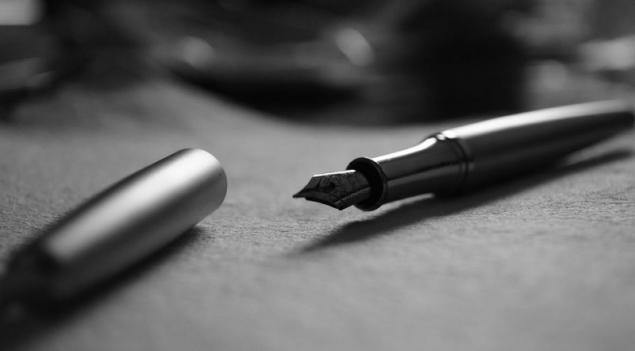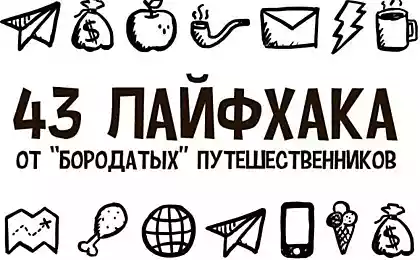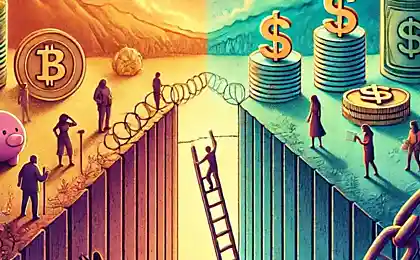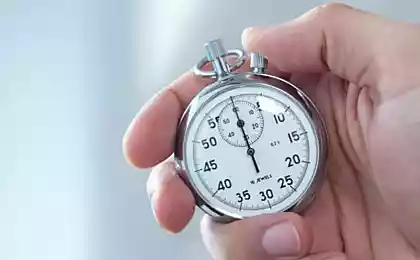423
Thirty-second habit that will change Your life

This advice was not born even in our era of digital abundance, and General disappointment. It was an elderly gentleman who lived in the XIX century, his grandson, the teenager, who now goes fifth decade.
Today this man is the "gray cardinal" of the business world is one of the most interesting people I have ever met. He helped to develop devices which are now sold under well-known brands. Today, he works only when he feels that he has something to offer to others. He is immersed in the observation of the stock price, the impending appearance of corporate crises. Sometimes when he's interested enough, he writes speeches for CEOs of major global companies and politicians, his words are measured six-digit numbers. It only reads a lot, and productively writing. Novels. But just for fun: at the end he removes them. He sees no point in getting it published, and not seeking publicity in General. Among his friends the most influential people in the world — from businessmen and politicians to actors and other representatives of art. But if you Google his name and you will find only a couple of lines.
I first met him for coffee at his house, during the discussion of the strategy of one political non-profit organizations in Africa. At the table there was a rough discussion. The owner of the house, making coffee, said almost nothing. But on the few occasions when he joined the conversation, its a short question or remark is invariably clarified exactly what was really important, dismissing unnecessary disputes that clog up the discussion. It was a real skill, like watching a conductor with the London Philharmonic orchestra, leading to a form a student orchestra from a small town.
So when he shared with me the advice, best I ever got, I was all ears.
If you can only do one thing, do it
He was still a boy and was going to high school. His grandfather, addressing grandson, said the following:
After each lecture, meetings or any other important experiences to spend thirty seconds — no more, no less — and write down the important points. If you're always going to do so — said his grandfather — that this alone, without any repetition, will help you remember and understand everything.
The grandfather's advice was not in vain. Our hero used it in all their Affairs and undertakings, and he still had enough time to experience life to the fullest. Later, he shared this advice with their sons, who also succeeded.
I have tried this method for several months. And here's what I found:
It's not abstract. I do not think that if during the meeting you will outline all, you do not need a thirty-second generalization. This experience is quite different from the usual recordings you make in order not to forget important items. Rather, it is the interpretation, prioritization and decisions.
It's hard. Decide what is most important, really hard. It is very easy to tell yourself that you remembered, to find an excuse to avoid this the brain short sprint, a kind of gym for your brain.
Details — it's a trap. We often think that "remember everything." And it is hard to force yourself to weed out unnecessary details in order to identify those points that are really important. The way to perfection lies through the art to remove the excess.
You must act quickly. After a couple of hours you will be able to recall facts, but miss the nuances. And without them you will be able to make a mistake by determining what is really important. This can be the tone of voice of your interlocutor, or at first glance the mere suggestion that ignited in you the spark, or the shadow of someone else's ideas that influenced your thoughts.
You better learn to listen better and to ask questions.Once you get used to the rule of thirty seconds, you will be able to better kontsentrirovanija on the subject of conversation or discussion. This is similar to the ability to identify the pure tone in the cacophony of sounds. As you begin to listen with great attention, you ask the right questions that really lead to the desired answers that makes your thirty-second overview even more useful.
You are able to help others more. As a thirty-second generalization helps you to capture the essence of you becomes clear what is important to others. This rule will help you to understand the point of view of your opponent and combine your interests. It doesn't surprise me: when I was interviewing different people involved in charity work, I was amazed that many of them unconsciously use the technique of a thirty-second overview to concentrate on the question how to make their assistance more effective.
With experience it becomes easy. Each time you getting a little easier to isolate the main thing, you find it more useful and even begin to enjoy the process of separation of grains from chaff. published
Author: Robyn Scott, social entrepreneur and writer
Source: interesno.co/myself/9987f46a01d0























